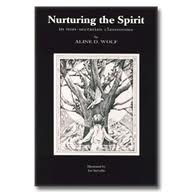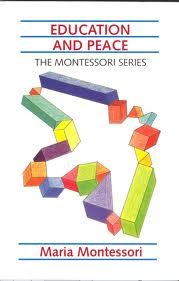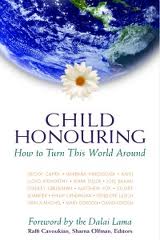Empowering Children: Children's Rights Education as a Pathway to Citizenship by Katherine Covell and Brian R. HoweApproved by the General Assembly of the United Nations in 1989, the United Nations Convention on the Rights of the Child affirms that children in all countries have fundamental rights, including rights to education. To date, 192 states are signatories to or have in some form ratified the accord. Children are still imperilled in many countries, however, and are often not made aware of their guaranteed rights.
In Empowering Children, R. Brian Howe and Katherine Covell assert that educating children about their basic rights is a necessary means not only of fulfilling a country's legal obligations, but also of advancing education about democratic principles and the practice of citizenship. The authors contend that children's rights education empowers children as persons and as rights-respecting citizens in democratic societies. Such education has a 'contagion effect' that brings about a general social knowledge on human rights and social responsibility. Although there remain obstacles to the implementation of children's rights in many countries, Howe and Covell argue that reforming schools and enhancing teacher education are absolutely essential to the creation of a new culture of respect toward children as citizens. Their thorough and passionate work marks a significant advance in the field. |
Education in the Best Interests of the Child: by R. Brian Howe and Katherine CovellA Children's Rights Perspective on Closing the Achievement Gap
A large body of research in disciplines from sociology and policy studies to neuroscience and educational psychology has confirmed that socioeconomic status remains the most powerful influence on children’s educational outcomes. Socially disadvantaged children around the world disproportionately suffer from lower levels of educational achievement, which in turn leads to unfavourable long-term outcomes in employment and health. Education in the Best Interests of the Child addresses this persistent problem, which violates not only the principle of equal educational opportunity, but also the broader principle of the best interests of the child as called for in the UN Convention on the Rights of the Child. Building on the children’s rights work accomplished in their previous book, Empowering Children, Brian Howe and Katherine Covell identify three types of reform that can significantly close the educational achievement gap. Their findings make an important argument for stronger and more comprehensive action to equalize educational opportunities for disadvantaged children. |
Children of the Universe by Michael and D'Neil DuffyThe first complete book on Cosmic Education explains Maria Montessori's overall plan for the elementary curriculum. Includes Stories of the Universe, The Solar System, The Earth, Life, Humans and Civilizations. Written by two experienced Montessori teachers who are now teacher-trainers. This text, now used in many training programs, will help anyone seeking to understand Cosmic Education.
|
Nurturing the Spirit in Non-sectarian Classrooms by Aline D. WolfThis book reiterates the fundamental purpose of Maria Montessori's philosophy of bringing about a "better world by nurturing the spirit of the child." The book draws upon published authorities on the importance of the nurturing of the spirit, along with experiences of active Montessorians for everyday examples of nurturing spirituality in the classroom. The book is divided into three parts with 21 chapters. Part 1, "The Meaning and Importance of Spirit," contains: (1) "The Spiritual Legacy of Maria Montessori"; (2) "What Does 'Spirituality' Mean"; (3) "The Differences between 'Spirituality' and 'Religion'"; (4) "Comparing 'Spirit' and 'Soul'"; and (5) "The Child - The Essence of Spirituality." Part 2, "The Spiritually Aware Adult," includes: (1) "Nourishing the Spirit of the Teacher"; (2) "Support for Deepening Spirituality"; and (3) "Community for Teachers." Part 3, "Ideas for Children in Non-Sectarian Settings," offers: (1) "Cultivating Stillness"; (2) "Wonder - the Leaven of Spirituality"; (3) "Experiencing Wonder in the Classroom"; (4) "The Spiritual Meaning of Cosmic Education"; (5) "Care of the Earth - A Spiritual Way of Life"; (6) "The Spiritual Roots of Peace Education"; (7) "Children's Inner Peace and Love"; (8) "Peace in the Classroom Community"; (9) "The School as a Family/Global Community"; (10) "Spirituality and the Arts"; (11) "Controlling Advertising in the Environment"; (12) "What about God?"; and (13) "Explaining Spiritual Nurture to Parents." An appendix, bibliography, and recommended resources conclude the text. (EH)
|
Education and Peace by Maria MontessoriDuring the 1930's, as war clouds gathered over Europe, Maria Montessori became profoundly concerned with the question of peace. The problem of war caused her to engage in a passionate search for new human truths. Taking as her starting point her conviction that the child must be our teacher, she moved on to consider the problems of human and social development and began a crusade in the name of education: "Establishing a lasting peace is the work of education; all politics can do is keep us out of war". This collection of speeches, delivered by Maria Montessori at international congresses and peace councils, vividly reveals why she was proposed as a candidate for the Nobel Peace Prize. Today, her philosophy of peace is still of value in a constantly changing and unstable world.
|
Child Honouring: How to Turn This World Around by the Dalai Lama, Raffi Cavoukian, Sharna OlfmanThis work introduces "Child Honouring," a philosophy that encourages adults to face and address negative conditions affecting children. This book focuses on threats to our children's health ranging from environmental pollution to failed family factors. Contributors include leading figures from many fields. Sharna Olfman joins Raffi Cavoukian to introduce his original philosophy, Child Honouring - a compassionate revolution in values, a children-first approach to global restoration. This remarkable anthology outlines the unprecedented threats to life at this defining moment in history, and offers a novel and systemic remedy for societal transformation based on honouring our youngest and "most valuable players." Contributors from across many disciplines include renowned child development author Penelope Leach, Nobel Prize nominee Lloyd Axworthy, celebrated cultural historian Riane Eisler, bestselling author Barbara Kingsolver, and ecological economist Ron Colman. Child Honoring is a corrective lens that, once we look through it, allows us to question everything from the way we measure economic progress to our stewardship of the planet; from our physical treatment of children to the corporate impact on their minds and bodies; from factory schooling to rampant consumerism. It offers a proactive developmental approach to creating healthy and sustainable societies. As a creed that crosses all faiths and cultures, Child Honoring is a unifying idea: a central organising principle for a culture of peace. This book will inspire thought - and provoke action - in all who read it.
|






